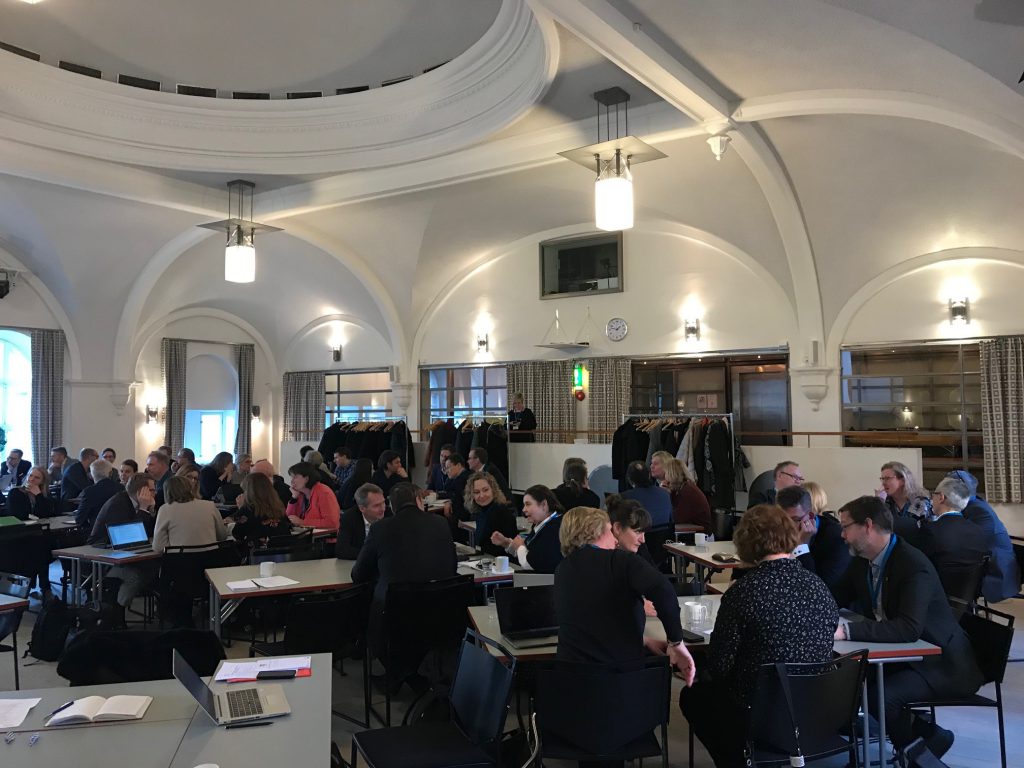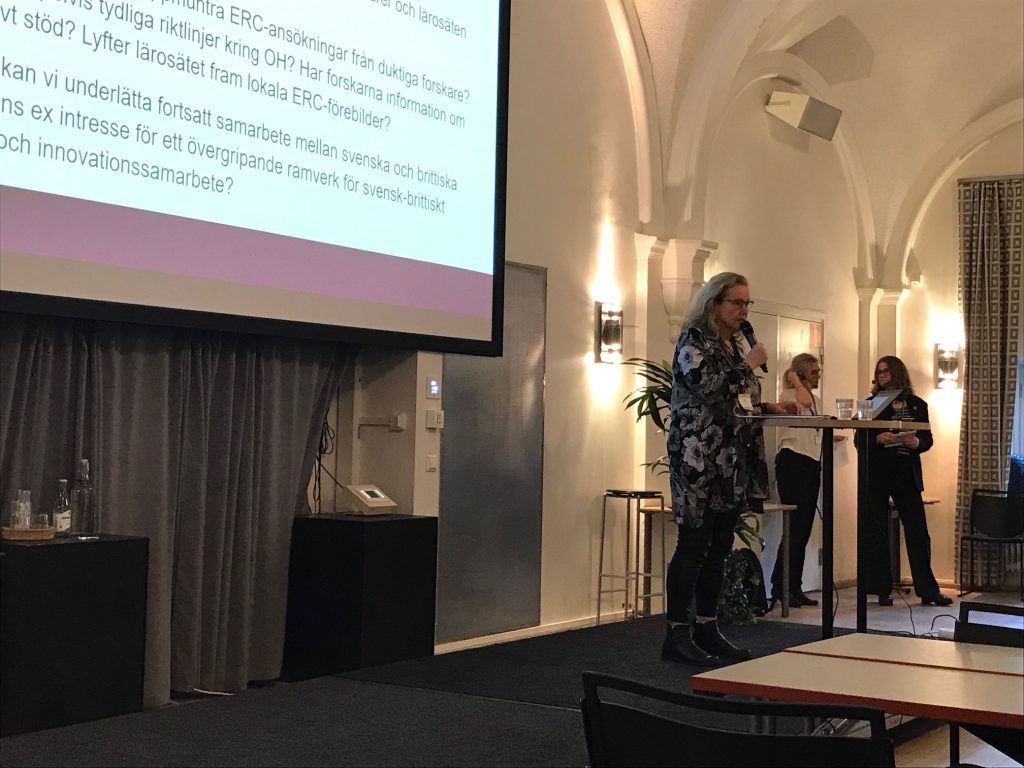On Friday, I (Eva) took part in a dialogue seminar on topical issues organised by the Association of Swedish Higher Education Institutions (SUHF). The agenda included an update and analysis of HEI input to the government’s research bill, research infrastructure, the 2030 Agenda and European research policy.
According to the analysis presented by Professor Lars Geschwind of KTH Royal Institute of Technology, HEI input to the research bill reveals a clear consensus on certain issues: the research-education link, research infrastructure and health and life sciences were three major themes that recurred in the input from HEIs. It was pleasing to see that more HEIS raised the importance of autonomy and self-determination than in the past. The need to eliminate barriers hindering HEIs’ development has increased further in the context of international competition. We are also witnessing a tougher environment for academics, who are subjected to threats in Sweden and even more so in other countries. There is every reason to continue to take a clear stand for autonomy and increased self-determination, both individually and together. We chose to make this issue the starting point of our input. However, there was less unanimity among those of who had submitted input on some other issues, including exposure to competition and incentives for collaboration.

An in-depth discussion on research infrastructure came next. I was one of several participants to identify this as one of the key issues for the future in an opinion piece published by the newspaper UNT before Christmas. Funding is naturally a vital concern, with large amounts having been lost due to the weakening of the Swedish krona. The fact that research is an international activity is striklingly obvious in this context. Needless to say, increased costs make it more of a challenge to prioritise national research infrastructure, if there is actually any money to allocate. A heavy responsibility falls on the larger universities, like Uppsala, to cope with the situation. Of course it is also important for Sweden to work on increasing revenue at MAX IV and other facilities.
The afternoon began with a discussion on the 2030 Agenda from an HEI perspective. Olle Lundberg, Secretary General of Forte (the Swedish Research Council for Health, Working Life and Welfare), and Johanna Adami, SUHF’s spokesperson for the 2030 Agenda, introduced the session. We noted that discussions on the issue of sustainability tend to focus on the environment and climate, and that the social dimension of sustainability also poses many serious challenges. If the sustainable development goals are to be met, there is an urgent need for evidence and long-term knowledge-building in areas such as widening inequalities, social exclusion and strained health and welfare systems as well. It is important that knowledge based on research is available and finds an audience so that the right measures are taken in society.

The day ended with a welcome discussion on European research policy, a highly topical issue. The EU is the third largest funder of Swedish research and an important platform for international cooperation, so it is important that we are involved in the shaping of policy. The Horizon Europe framework programme, which will come into effect in 2021, has been negotiated and contains much that is positive. The European Research Council (ERC), for example, will continue its mission to support frontier research, and the most important instruments for mobility and infrastructure will also continue. But there is also cause for concern. Financing is currently under debate and Finland, holding the Presidency, has proposed a reduction from 1.11 per cent of GDP to 1.07 per cent. Moreover, Brexit will leave a hole in the finances – though at the same time, it may open up new opportunities in our relations with the UK, which we must be sure to take (read the EUA briefing on Brexit).
In my invited comments, I emphasised the importance of a Swedish voice in Brussels and that the Swedish funding bodies’ coordination function EU-SAM needs to involve the HEIs in its work. Also, Swedish politicians are far too lukewarm in their interest, even though for every krona we invest in research we receive more money in return from the EU. They need to stand up for adequate funding for research and education, both in Sweden and in Brussels. The HEIs act through various university networks, but it would be an advantage to come together and pursue a common Swedish line. This would enable us to contribute things we are good at, such as synergies between research and education, where EU interest is growing, and to bring pressure to bear on important future issues. We should be involved and work for continued openness to the wider world, a long-term perspective in major partnerships and influence on the shaping of policy. The vision of increased cooperation between European universities has so far focused primarily on education, but research and innovation show up increasingly in the rhetoric. At the end of February I will be travelling to Brussels to discuss these issues with my colleagues in the Guild network. So we will come back to this issue during the spring.
